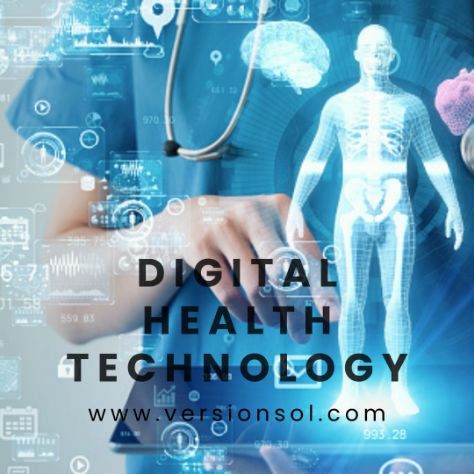We are currently witnessing technological change in the healthcare system. Healthcare systems are rapidly adopting digital health technologies. As we know Industries like automobiles, insurance, and finance have already been transformed by technology. Many health gadgets and other technologies inside the healthcare industry are now essential just like digital technology and networking solutions. Previously, the speed of technical innovation in the healthcare industry had lagged behind that of others sectors, mostly because of the complicated requirements, that are placed on top of health and safety issues.
Instruments providing remote patient observation have also received a significant amount of attention and therefore will continue to be an important part of improving care accessibility and treatment. Key participants in the health sector, such as payers, physicians, and, obviously, patients, are becoming more responsive.
Top five digital health technologies
Smart Equipment
Wearable technology, smartphones, and digital health applications are great ways for patients to take charge of their health and have information. Patients can share all information with the doctors with a click. Similar to how current digitally connected health gadgets can alleviate the pressure that can result from merely adhering to a physician’s advice.
Auto-injectors
Autoinjectors and smart inhalers are great examples of digital health technologies. These smart health care tools deliver a precise amount of medicine.
Robotic Treatment
Doctors can conduct a variety of difficult surgeries with ultimate control, accuracy, and versatility using surgical robots than using traditional techniques. A robotic camera stick or arm is extensively adopted by surgeons. A computerized interface is located close to the operating table. It allows the physicians to control the robotic camera while providing an enhanced and extremely detailed three-dimensional picture of the surgery place.
AI Digital health technology
The adoption of new technologies like IoT and Artificial intelligence will completely transform the healthcare sector, from how new prescription pharmaceuticals are developed and evaluated to how people may better control their health. Technological advances like genomics, computer vision, and automation (AI) are bringing new and effective approaches to managing diseases affordably.
Health IoT
The Internet of Things (IoT) is a developing network of real-world items that can link to other internet-connected devices and share data by using applications, sensing, and other technologies. Wearable technology, monitoring systems, and linked apps are helping the medical sector to meet healthcare demands.
Related: Top 10 disruptive technologies
Top 5 digital health companies
Vanderbilt Health
Through its AI technology, Vantage Healthcare is reinventing the clinical treatment system. This enables healthcare professionals to utilize better use of available assets as opposed to transferring patients to the hospitals.
Mendelian
Mendelian is a diagnostic medic solution place that uses AI and mainly focuses on uncommon diseases. It is intended for use by professionals and helps doctors to provide early identification to patients, enhancing patient care. The Mendel algorithm finds disorder characteristics using EHR systems along a patient group, then compares them to the clinical standards for serious conditions. Doctors can enhance the accuracy of the treatment by combining existing medical expertise.
Doctors On Demand
A digital health technology called Doctor On Demand provides telehealth solutions so that patients can get digital healthcare. The business offers a mobile application that allows for teleconsultation, and it also employs a group of licensed doctors known as Professionals to provide medical assistance.
Maven
Maven is a digital health company that offers telehealth services with a focus on family and gender-based issues.
Bleepa
Bleepa is intended for use by hospital workers. It integrates the capacity to transmit particular clinical photos such as x-rays with private instant communication. This implies that medical personnel spread around a hospital location can quickly evaluate photos, debate issues, and reach a consensus.
Digital healthcare technology advantages
There are too many advantages that these digital healthcare technologies provide. A few of them are:
- Patient Experience Improvement
- One can monitor and save patient records using smart health apps
- Technology aids in automating data analysis so that healthcare organizations can assess the results, identify problems that need to be fixed, and come up with solutions to enhance the quality of treatment.
- Responsive and sustainable healthcare
- More private health consultancy
- Healthcare that is responsive and sustainable
- The doctor-patient relation
- Data Security: Physical files or records are safer than online information because online data is always at risk of undesirable attacks. Unexpected occurrences, such as natural disasters, or human error, might result in the loss of medical information to patients. To overcome this issue a well-designed digital data storage system is essential.
Related: Everything you need to know about Digital Rights management
